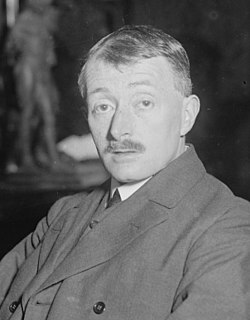A Quote by Douglas Hofstadter
The key question is, no matter how much you absorb of another person, can you have absorbed so much of them that when that primary brain perishes, you can feel that that person did not totally perish from the earth... because they live on in a 'second neural home'?... In the wake of a human being's death, what survives is a set of afterglows, some brighter and some dimmer, in the collective brains of those who were dearest to them... Though the primary brain has been eclipsed, there is, in those who remain... a collective corona that still glows.
Related Quotes
Everybody has an image of [princess Margaret], to a certain extent. But I felt it would have been harder if we were playing them as they are now. In a way, I don't know how much of a living memory we as a collective have of them in the '50s, when Margaret was 21 and this sort of Elizabeth Taylor. You don't think of your grandparents as being teenagers. You just can't - your brain just can't go there!
Insomnia is a variant of Tourette's--the waking brain races, sampling the world after the world has turned away, touching it everywhere, refusing to settle, to join the collective nod. The insomniac brain is a sort of conspiracy theorist as well, believing too much in its own paranoiac importance--as though if it were to blink, then doze, the world might be overrun by some encroaching calamity, which its obsessive musings are somehow fending off.
I had never thought I could love another person this much. I also never thought I’d live in such fear of losing another person. Was this how everyone in love felt? Did they all cling tightly to their beloved and wake up terrified in the middle of the night, afraid of being alone? Was that an inevitable way of life when you loved so deeply? Or was it just those of us who walked on a precipice who lived in such panic?
The brain is a stubborn organ. Once its primary set of beliefs has been established, the brain finds it difficult to integrate opposing ideas and beliefs. This has profound consequences for individuals and society and helps to explain why some people cannot abandon destructive beliefs, be they religious, political or psychological.
Psychologism holds that logical assertions are percolations of brains. Thus logic is a set of rules for how healthy brains operate. Aside from the infinite regress of a brain determining whether a brain is healthy, we have the infinite regress of the idea 'All concepts are brain percolations' being itself a brain percolation, on its own terms.
By 2020, most home computers will have the computing power of a human brain. That doesn't mean that they are brains, but it means that in terms of raw processing, they can process bits as fast as a brain can. So the question is, how far behind that is the development of a machine that's as smart as we are?
Neural science, which is the study of the brain, tells us that we have up to one billion brain cells with thousands of branches that communicate with each other much like a complex highway system. The more we attend to something, or the more we engage in certain behaviors, the more those particular cells communicate and the pathways between them deepen. This is how our values, our beliefs, and our motivations are actually formed.
And I like a good horror story as much as the next person so long as they kill off some men too and not just girls. But the voices Joan heard were real. There’s clear and substantiated proof they were real. She won battles that would otherwise have been lost because of what those voices told her in advance of them allowing the French generals to strategize in ways completely different than they did before Joan came along. People’s lives were saved because of what those voices told her.
When I look at the human brain I'm still in awe of it. Every single time you lift off the bone and open the durra and there it is - the human brain, the thing that gives a person a personality, that distinguishes each one of us, that there could be more than 6 billion of us here on this planet with brains that look the same, but each one being distinctly different because of what is going on in that thing. I'll never get over my awe of that.
Going a little further into the future, we'll start literally connecting to machines. Some of my colleagues at MIT here - some of them are working on a neural mesh that connects directly to your brain, and they've already done it with some disabled people and allowed them to move objects just by thinking.






































